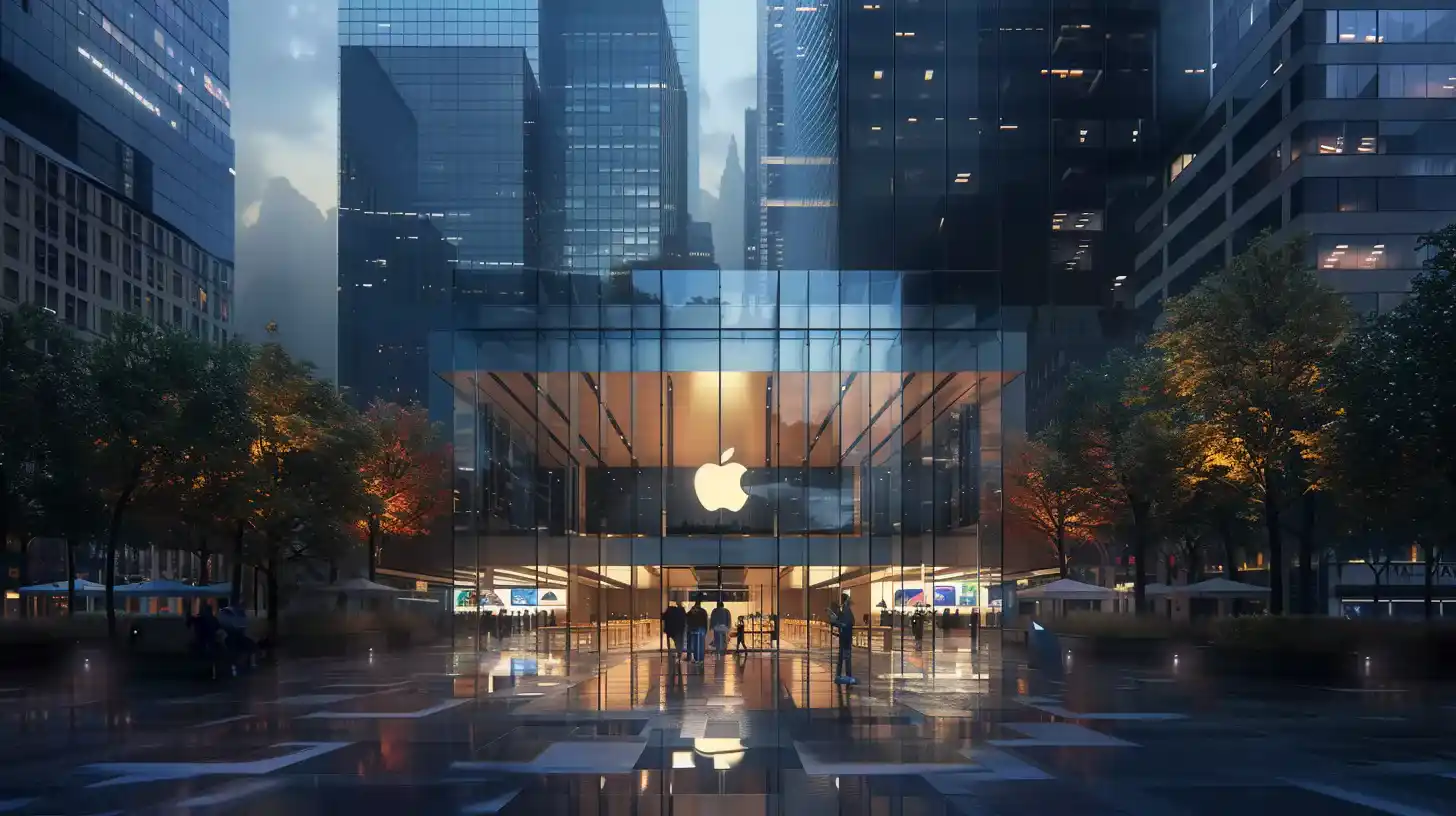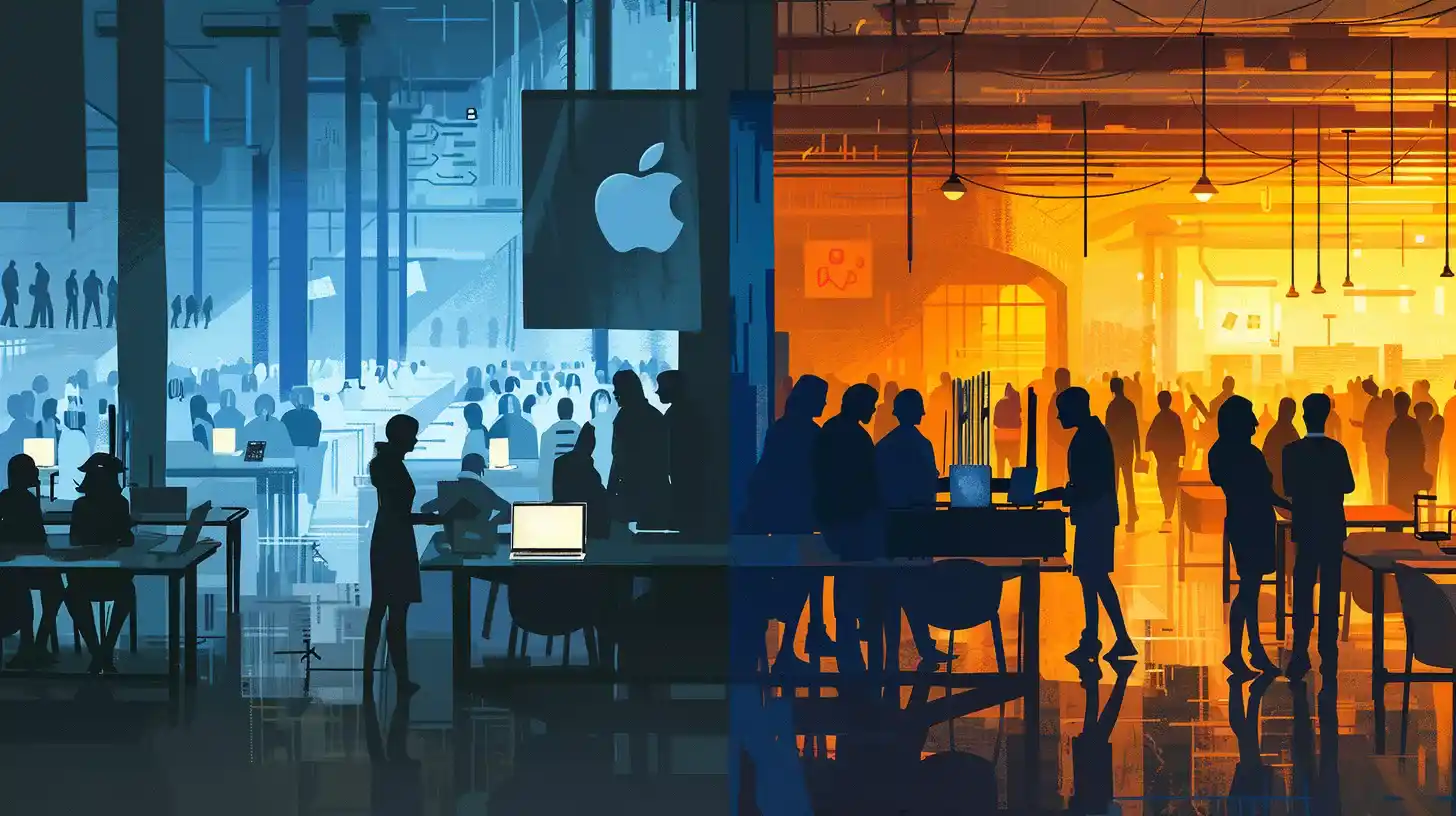Table of Contents
Apple Secret AI Lab, the tech titan, is quietly brewing a revolution in artificial intelligence. With a strategic poaching campaign targeting Google’s AI talent and a secretive lab nestled in Zurich, Apple is gearing up to battle industry giants in the race for next-generation AI features.
From Poaching Spree to Powerhouse: Apple’s AI Ambitions
Financial Times reports reveal a meticulous talent acquisition strategy. Apple has lured dozens of AI specialists from Google, including heavyweights like John Giannandrea, their former top AI executive. This influx of expertise bolsters Apple’s global AI and machine learning team, signaling a clear intent to dominate the AI landscape.
Apple Secret AI Lab in Zurich: Unveiling Apple’s Generative AI Focus
Beyond the personnel acquisitions lies a hidden gem – Apple Secret AI Lab “Vision Lab” in Zurich. Established after Apple gobbled up local AI startups, this lab is a hotbed for research into generative AI, a powerful technology that allows AI to process and respond to both text and visual inputs.

Job postings hint at Apple’s ambitions to deploy generative AI directly on iPhones, a move that would revolutionize mobile experiences by enabling powerful AI chatbots and apps to function independently, untethered from data center clouds.
The Race for On-Device AI: Can Apple Revolutionize the iPhone?
This focus on on-device AI positions Apple Secret AI Lab as a potential frontrunner in the race for “AI smartphones.” Industry experts like Sumit Sadana, from chip supplier Micron Technology, believe Apple’s success hinges on developing more powerful chips to handle the immense data demands of on-device AI models.
The upcoming iPhone could be the harbinger of this revolution, transforming it into a truly intelligent personal assistant capable of voice-controlled interactions across all phone apps.
Cautious Innovation: Apple’s Quest for Control in the Generative AI Age
However, Apple treads cautiously. The potential for language models to generate incorrect or offensive outputs compels them to prioritize control. Unlike rivals who readily tout their AI advancements, Apple seems content to refine their technology behind closed doors. This meticulous approach might delay the public unveiling of groundbreaking features, but it underscores Apple’s commitment to responsible AI innovation.
The curtains may be drawn on Apple Secret AI Lab, but the company’s strategic poaching, research focus, and potential for on-device AI advancements paint a picture of a tech giant poised to redefine the future of mobile intelligence. With the upcoming WWDC just around the corner, the world waits with bated breath to see the first glimpses of Apple Secret AI Lab revolution.
The Challenges and Potential of Apple’s Secretive Approach
While Apple’s methodical approach to AI development offers advantages, it also presents challenges. Here’s a deeper dive into both sides of the coin:
Challenges of Secrecy:
- Slower Innovation: The insular nature of Apple’s research could stifle collaboration and slow down the innovation cycle. Open-source communities and collaboration with other AI researchers can accelerate progress by allowing for the exchange of ideas and rapid iteration.
- Missed Opportunities: By keeping its cards close to its chest, Apple might miss out on potential partnerships or lucrative licensing opportunities for its AI technology.
- Public Perception: The lack of transparency surrounding Apple’s AI endeavors could breed suspicion and concern among consumers.

Potential Benefits of Secrecy:
- Maintaining a Competitive Edge: By keeping their research under wraps, Apple can ensure their AI advancements remain a surprise, potentially giving them a significant edge over competitors.
- Focus and Control: A closed environment fosters a culture of focus and allows Apple to exert greater control over the development and release of its AI features, potentially leading to a more polished and user-friendly experience.
- Protecting Intellectual Property: Generative AI research can be highly competitive, and Apple’s secrecy might be a tactic to safeguard their intellectual property from being copied by rivals.
The Road Ahead: Balancing Innovation with Openness
Apple Secret AI Lab approach to AI development has its pros and cons. The upcoming WWDC will be a pivotal moment, offering a glimpse into how Apple plans to balance the need for innovation with a more open approach. Will they showcase groundbreaking AI features that revolutionize the iPhone experience? Or will they continue to refine their technology in the shadows? Only time will tell.
One thing is certain: the race for AI dominance in the mobile space is heating up. Apple Secret AI Lab’s moves in Zurich, coupled with their focus on on-device AI, position them as a serious contender. As the industry evolves, Apple will need to navigate the delicate balance between maintaining a competitive edge and fostering openness and collaboration to truly unlock the transformative potential of generative AI.